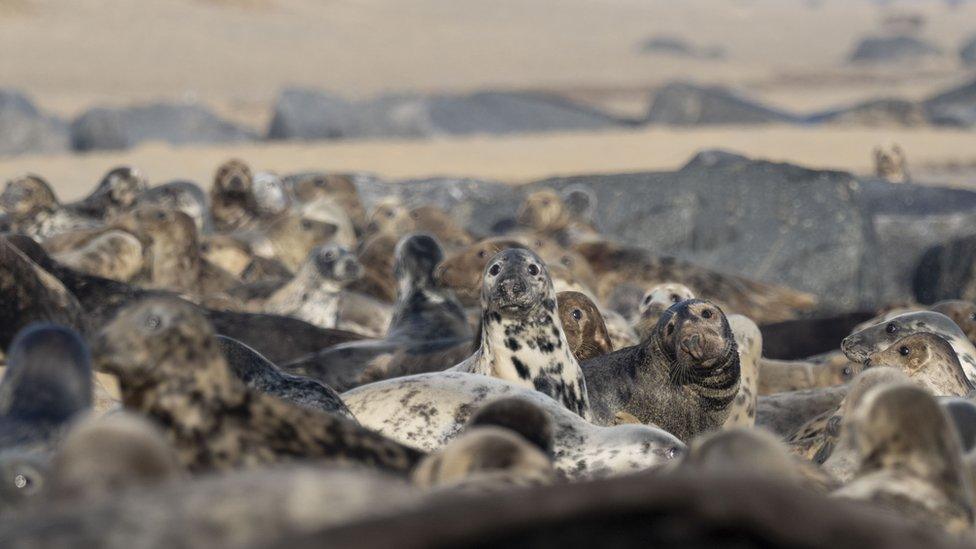Record numbers of seals found at Cumbrian nature reserve
- Published
- comments

There are two species of seals found in the UK, grey seals and common seals, grey seals are the larger of the two and they can grow to 2.6m in length and weigh up to 300kg
More than 500 seals have been recorded at South Walney Nature Reserve in Cumbria.
A record high of 518 seals were counted between September 2020 and March this year.
It is a jump of 7.2 percent on the results published in March 2019.
Dr Emily Baxter, senior marine conservation officer at Cumbria Wildlife Trust, said: "This is very exciting news and is a five-fold increase in the population of grey seals during the nine years that I've been with the trust."
Female grey seals give birth in the autumn and the baby seal pups stay on land until all their white fur disappears
A drone was used to count how many seals were at the reserve every two weeks.
Over the last couple of years seal number have increased significantly, 2019's survey counted 489 and 2018's only found 360.
To make sure the number of seals counted is as accurate as possible, volunteers also go out and count seals.
They crawl along the beaches with binoculars and watch and record what they see.
The drone data and the volunteer's data is then compared.
Adult grey seals spend most of their time out at sea eating lots of food but in the winter they 'haul out' on quiet beaches, rocks and islands
Dr Baxter said that both methods are important, but the drone data gives more accurate numbers.
Although the drones are effective in counting the seals the nature reserve had to get special permission to use them.
Natural England agreed as long as the drones flew very high to avoid distressing the seals and surrounding wildlife.
Seal beaches in the UK are closed to the public but despite this, lockdown caused some problems for the beaches.
Kayaks have landed in protected areas and scared the seals into the sea, which used up their much-needed energy.
People are being asked not to visit the beaches because they could disturb the animals but animal lovers can see a livestream of the seals on the Cumbrian Wildlife Trust's website.
- Published26 October 2020
- Published12 April 2021
